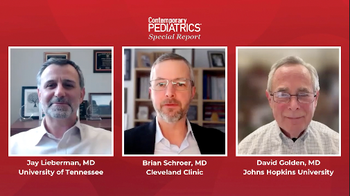
Stomach Pain, Depression Go Hand-in-Hand in Teens
Adolescents who regularly have abdominal pain face a substantially higher risk of depressive symptoms than those who seldom have abdominal pain, according to research published in the March issue of Clinical Gastroenterology and Hepatology.
THURSDAY, March 27 (HealthDay News) -- Adolescents who regularly have abdominal pain face a substantially higher risk of depressive symptoms than those who seldom have abdominal pain, according to research published in the March issue of Clinical Gastroenterology and Hepatology.
Nader N. Youssef, M.D., of the Goryeb Children's Hospital at Atlantic Health in Morristown, N.J., and colleagues analyzed data from 20,745 teens aged 13 to 18 who were surveyed as part of the Add Health Study. Subjects reported frequency of abdominal pain and were assessed using the Center for Epidemiologic Studies Depression Scale.
The investigators found that 16 percent of subjects overall had significant depressive symptoms; however, 45 percent of adolescents with daily abdominal pain fell into this group compared to 3.2 percent of those with rare abdominal pain. Children with daily pain were also much more likely to miss school at least 10 times a year and feel sad and lonely compared to those with rare pain, and were more likely to see their lives as a failure compared to those with no pain.
"Early recognition of hopelessness and other symptoms suggestive of depression in adolescents who present for evaluation of frequent abdominal pain is a key finding and offers an opportunity to provide more effective coping strategies to be offered earlier to these patients. An effective strategy for abdominal pain early in adolescence may have a positive effect on quality of life and decrease the associated psychosocial comorbidities associated with the chronic abdominal pain syndromes seen in adults," the authors write.
Copyright © 2008
Newsletter
Access practical, evidence-based guidance to support better care for our youngest patients. Join our email list for the latest clinical updates.



